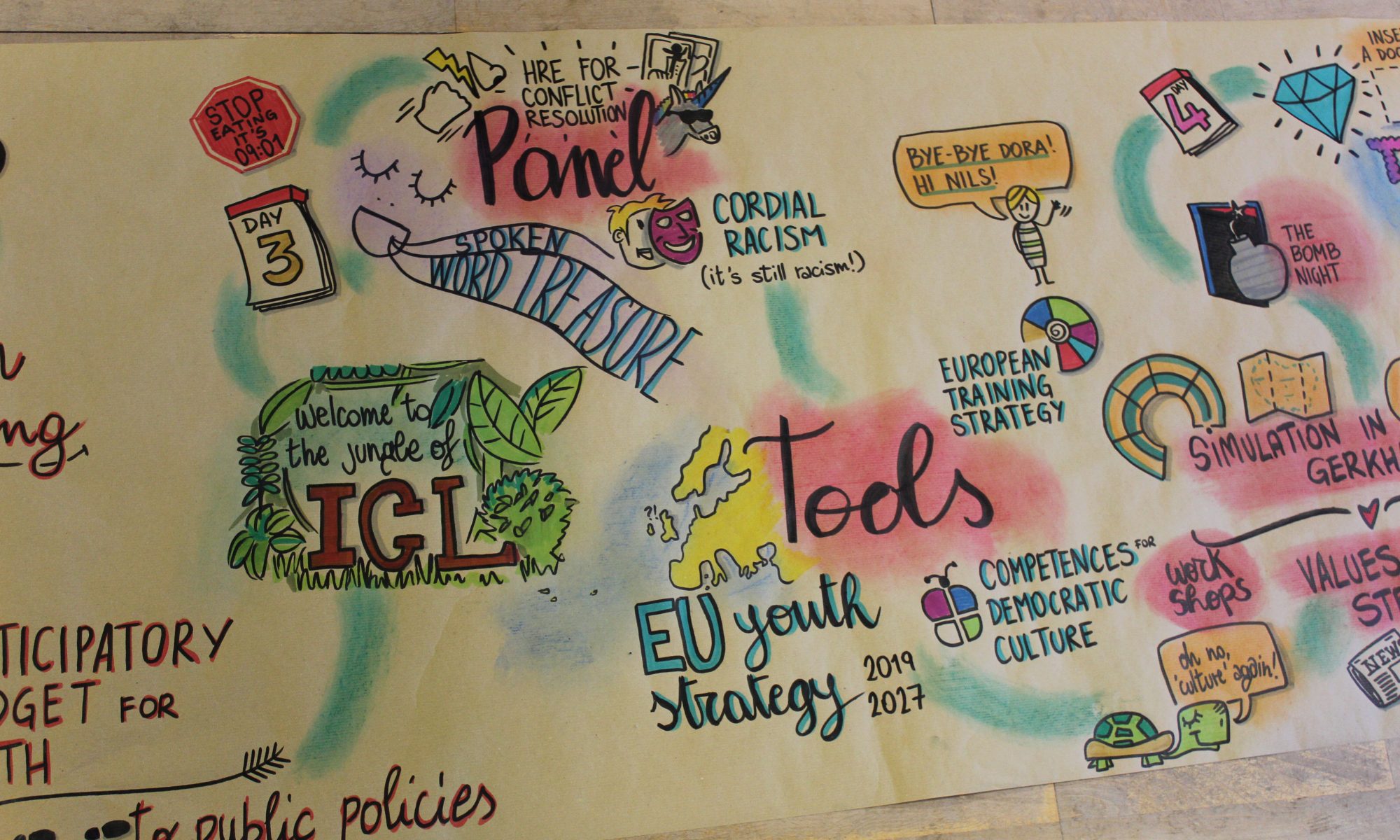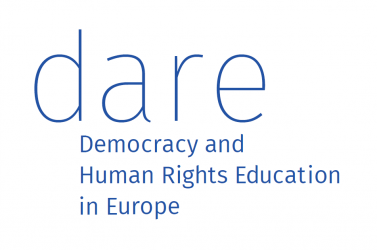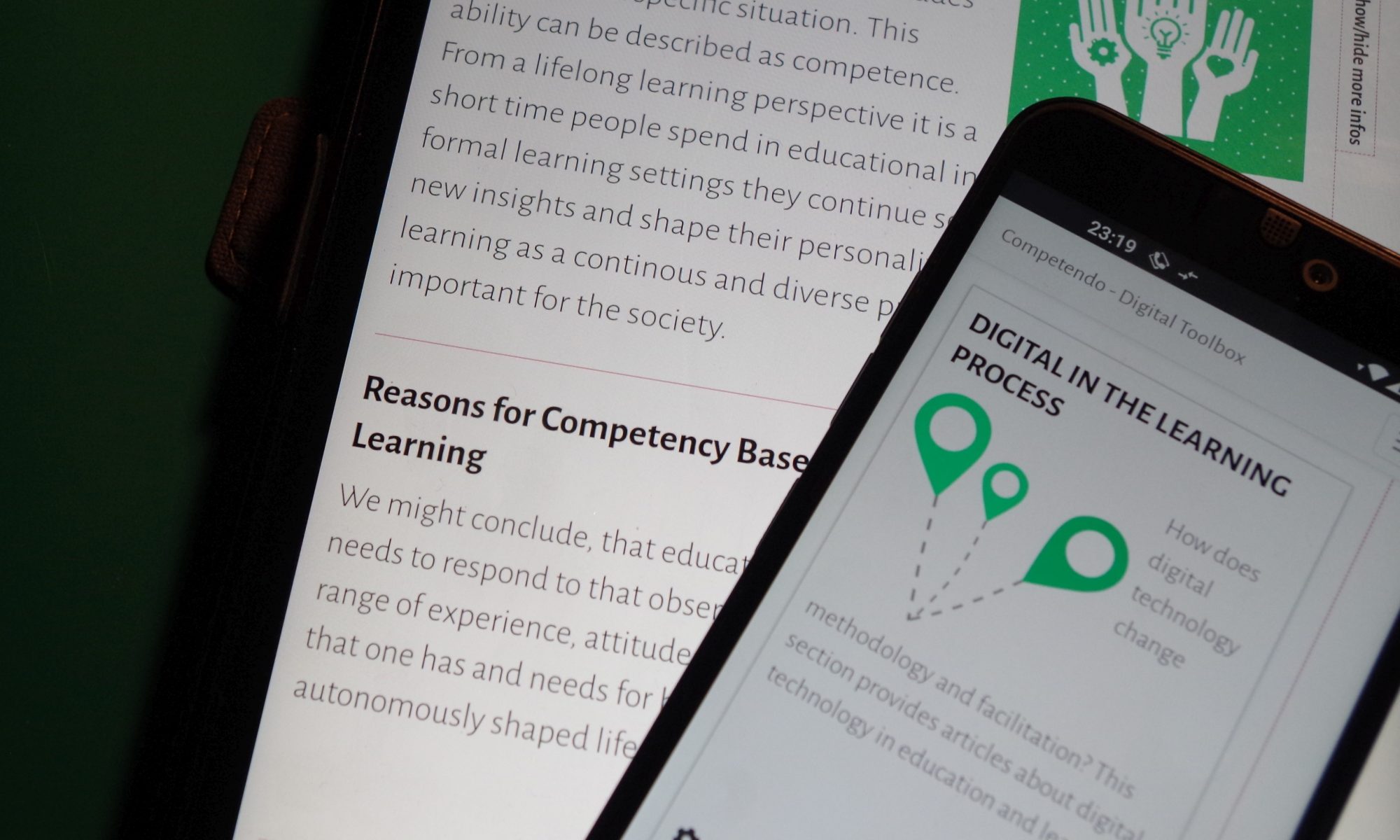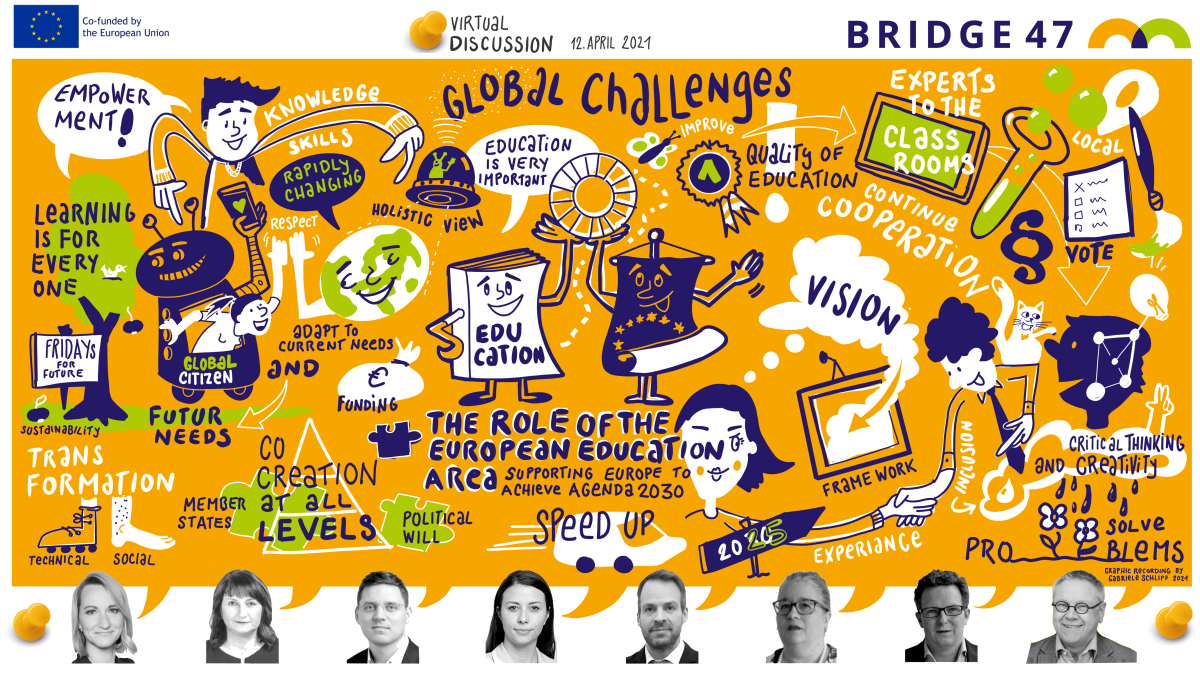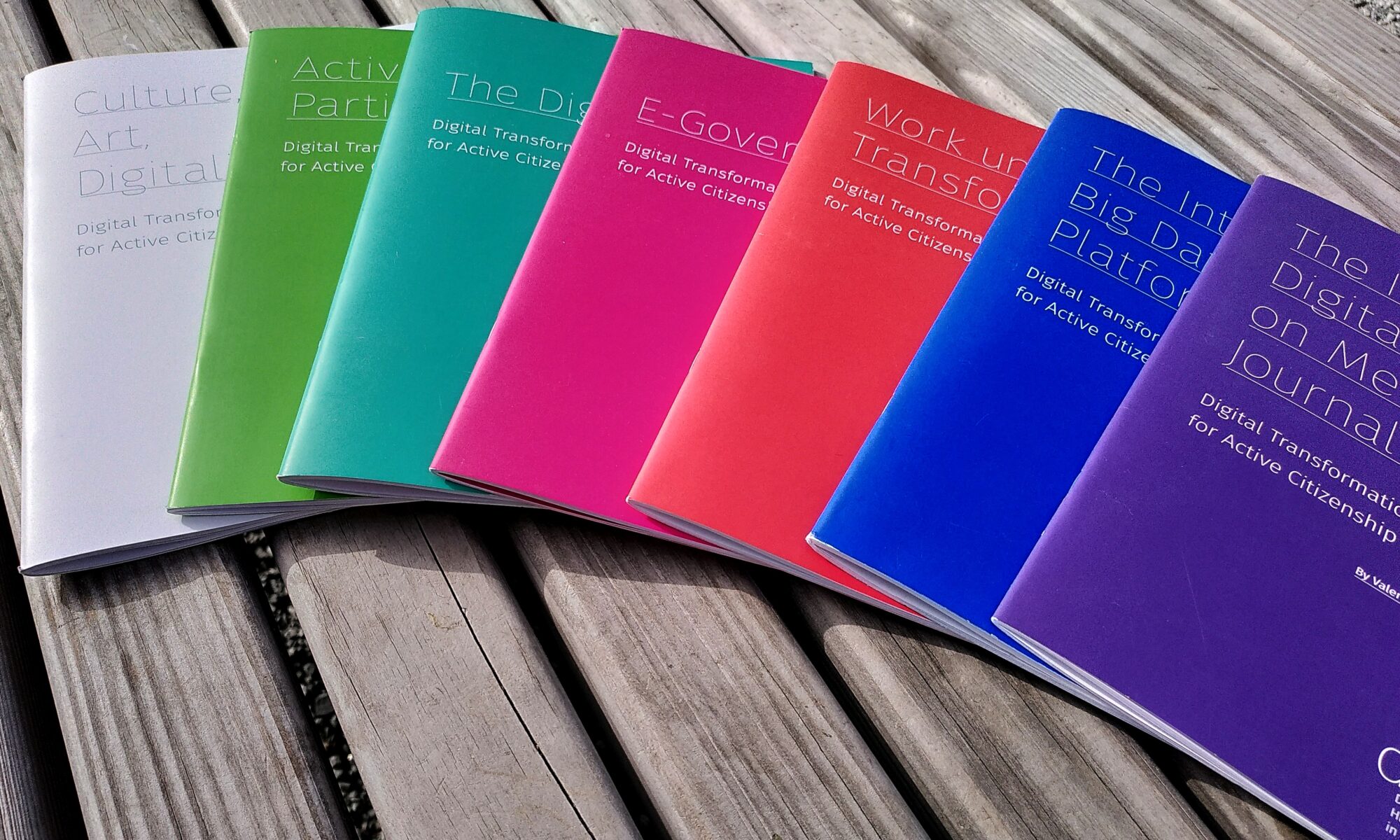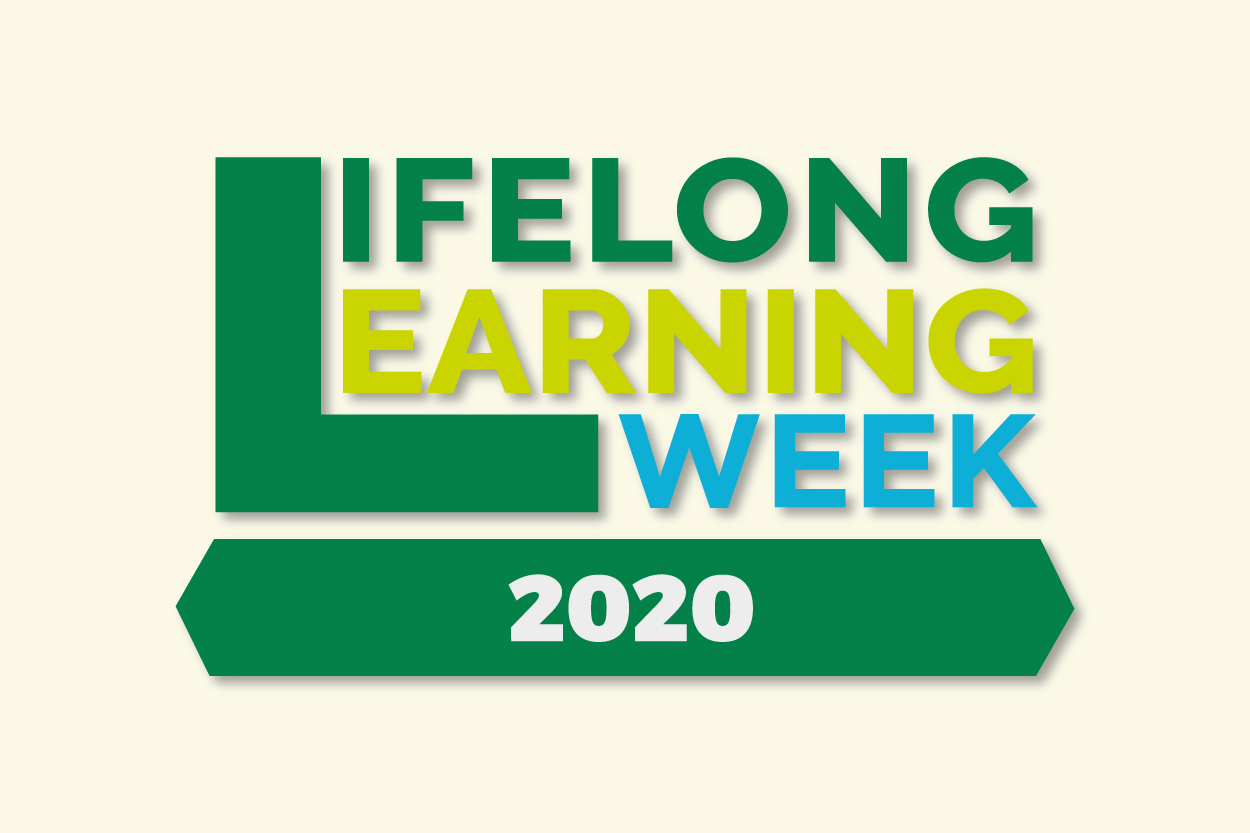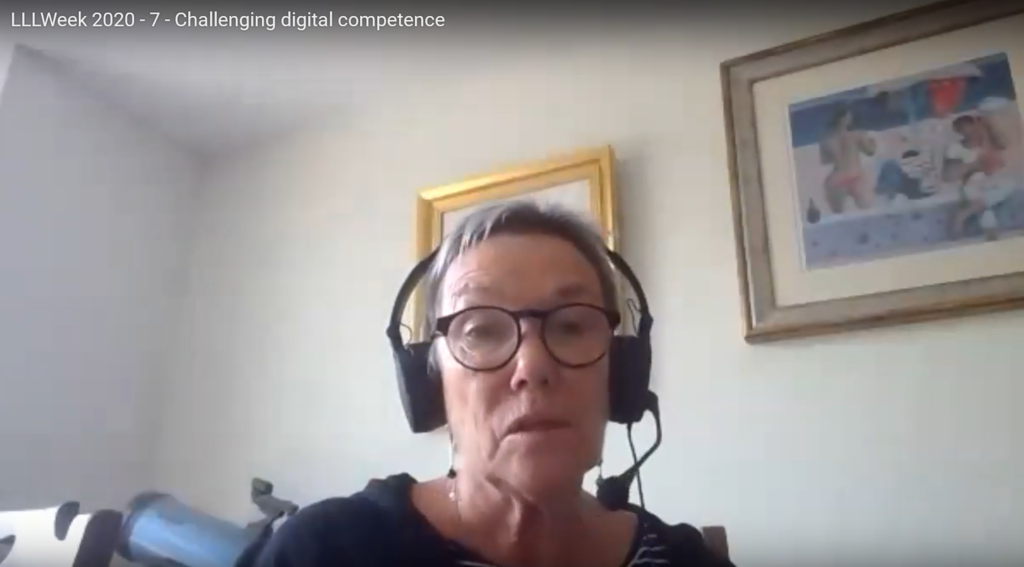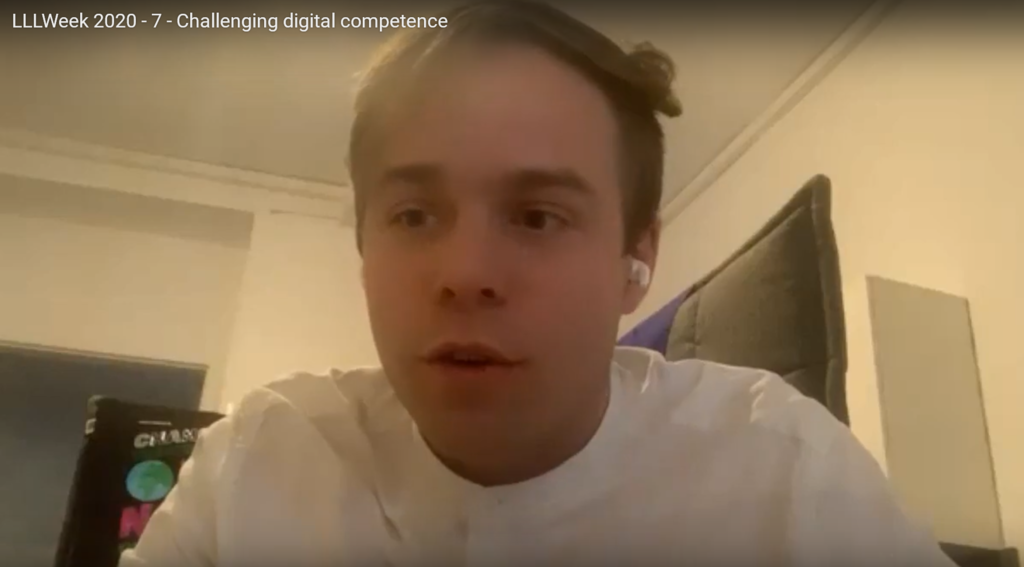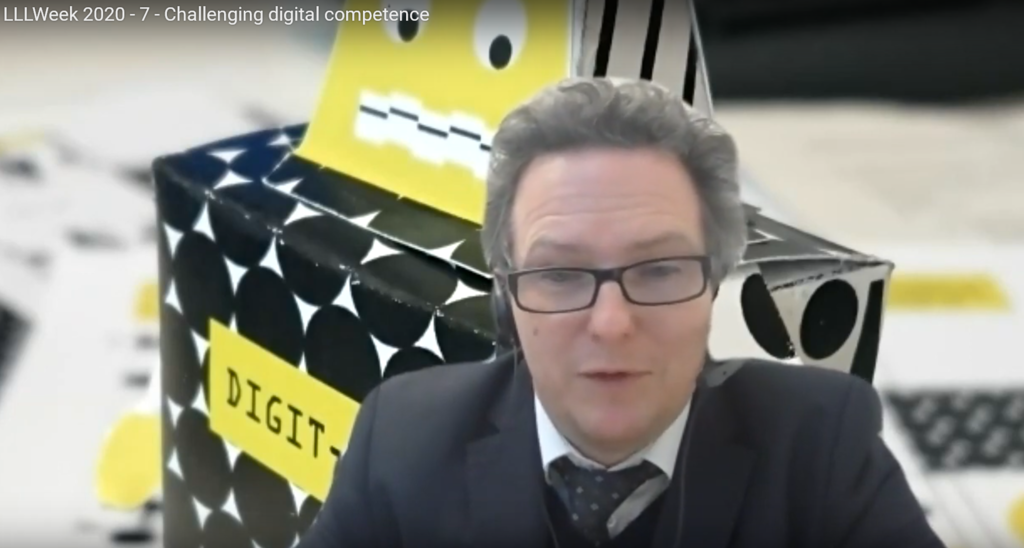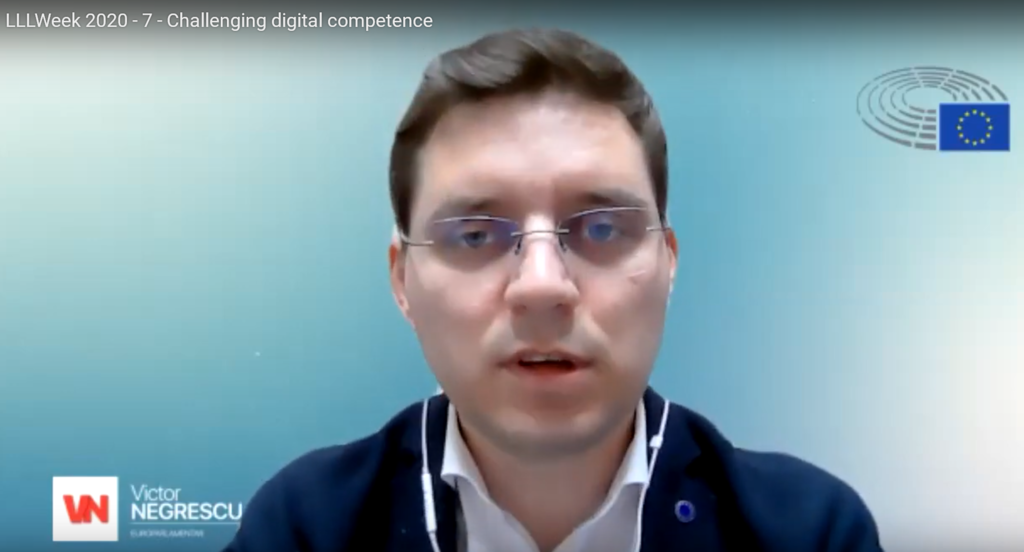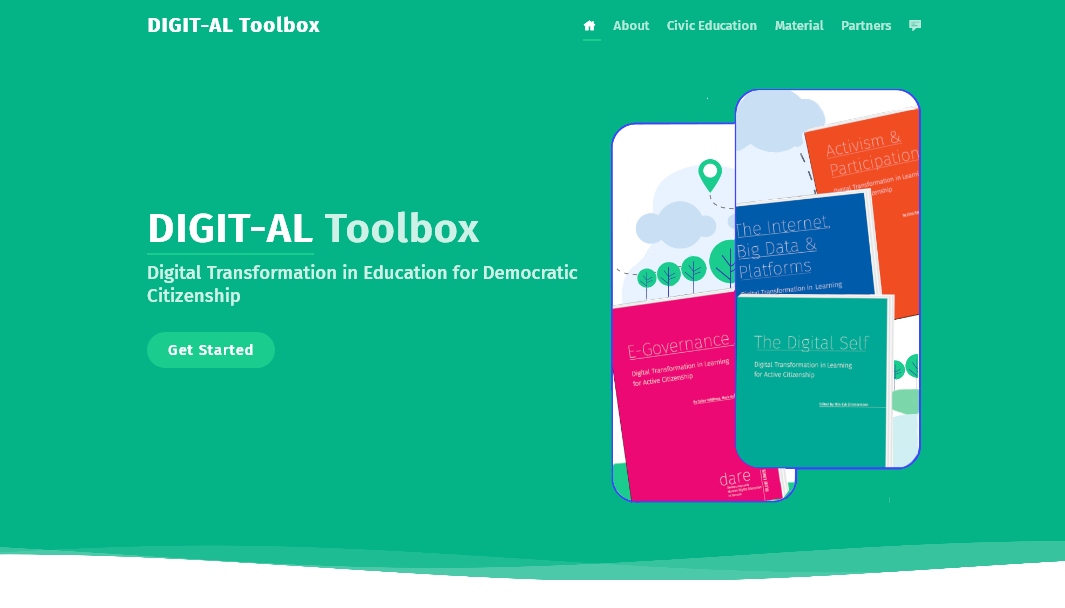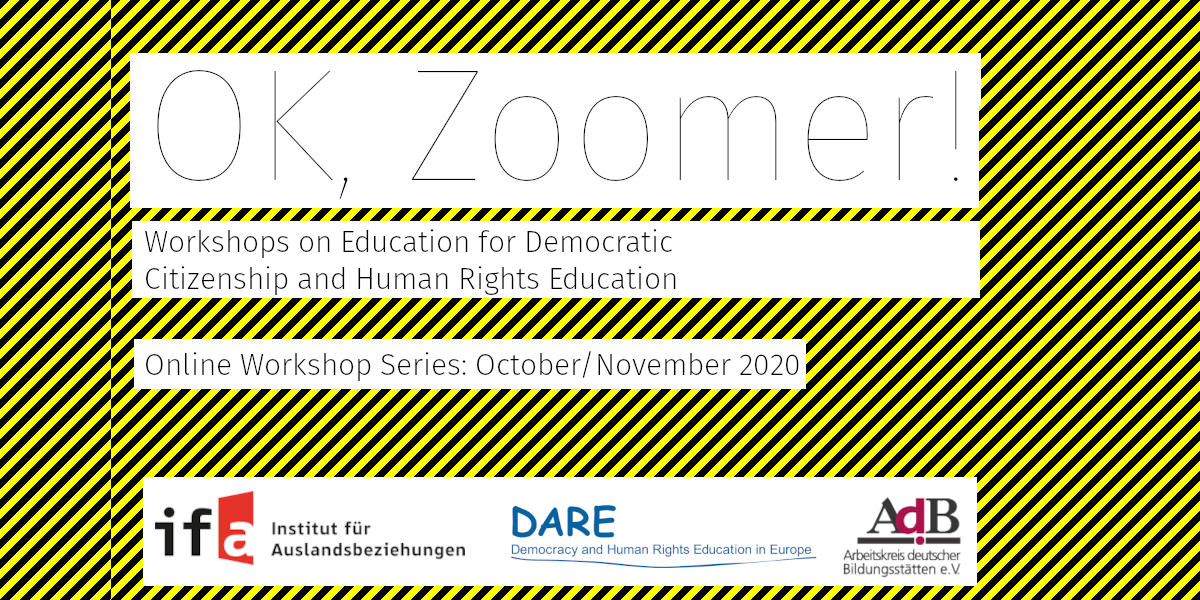The Competendo Digital Toolbox got a redesign, new articles about digitalisation as a topic for civic education and non-formal learning – and an App. You don’t need to go to the appstores, just enough to visit the toolbox https://competendo.net with a Safari, Chrome or Edge browser – and install it with one click.
Continue reading “New DARE App: Competendo Digital Toolbox”Underpinning the role of the European Education Area in supporting Europe to achieve Agenda 2030
Online discussion hosted by Dace Melbārde (MEP, ECR) and Michaela Šojdrová (MEP, PPE) and organised by Bridge 47, attended by the DARE network at April 12, 2021.
Continue reading “Underpinning the role of the European Education Area in supporting Europe to achieve Agenda 2030”European youth work should not perish! Reverse the cut in funding for digital activities in the Erasmus+ Youth in Action programme
DARE network is sharing the position published by five German organisations. Support digital and hybrid quality education! We are asking concretely for:
No digital cut!
Anchor adequate fundings in the new programme.
Erasmus+ is the most successful mobility program of the European Union. It has proven to make an essential contribution to the unity of the European Union, primarily through the Erasmus+ YOUTH IN ACTION program. It unfolds great potentials in promoting democracy, strengthening civil society and youth work (cf. RAY Interim Evaluation).
The Erasmus+ Youth in Action program has inspired innovation in youth work across Europe over the past 30 years. It is at risk, losing its role.
Continue reading “European youth work should not perish! Reverse the cut in funding for digital activities in the Erasmus+ Youth in Action programme”Competences for Democratic Culture and non-formal Education
DARE and Zentrum Polis have been coordinating an experiential two years test of the Council of Europes Reference Framework of Competences for Democratic Culture in various settings of cooperation between formal and non-formal education.
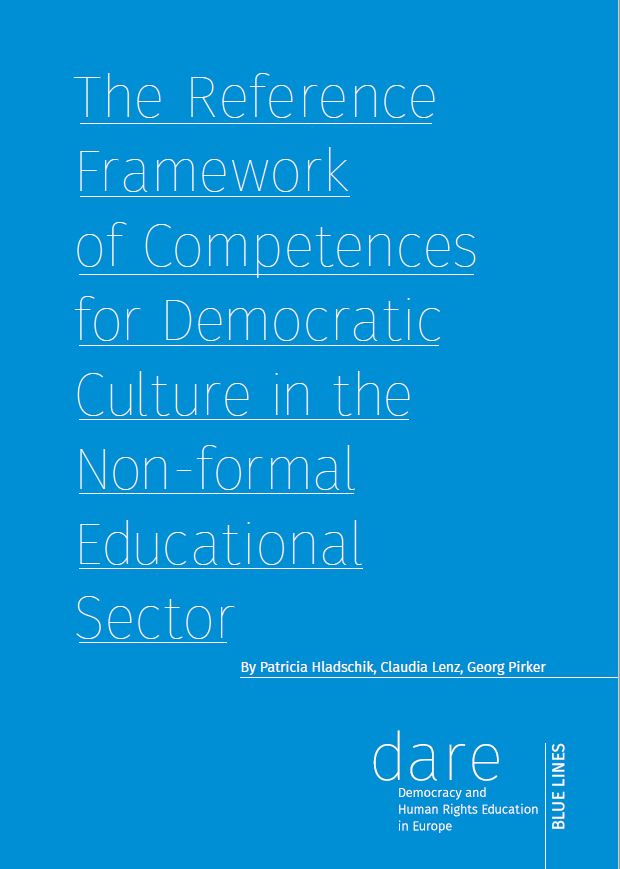
in the Non-Formal Educational Sector
Patricia Hladschik, Claudia Lenz, Georg Pirker (Ed.)
With articles of Ole Jantschek, Laura Meijer, Simon Oesterle, Hanna Lorenzen, Thimo Nieselt and contributions from Paola Carega, Nils-Eyk Zimmermann, Ramón Martínez.
91 pages, DARE Blue Lines 2020
How can the RFCDC interplay with other competence frameworks? How can a competence based approach contribute to build a bridge between the inherent field logics of formal and non-formal education? Where are practical benefits and limitations? An extensive field study and practice test allowed to draw findings for the field of cooperation between different sectors of learning, for using the RFCDC as a tool to support peer-learning, and as a reflection instrument for the design and conduction of non-formal learning processes, of educational practice and to support educators in EDC/HRE reflecting about their role and position in learning and educating, for, through and and about democracy.
Continue reading “Competences for Democratic Culture and non-formal Education”Smart City – Smart Teaching – Our Reader Series about Digital Transformation
Our series “Smart City – Smart Teaching” explores digital transformation as a topic in education in all ages and under a lifelong learning perspective. The focus is set on learning for democratic citizenship and the necessary digital transformation competencies. They are published under a Creative Commons License CC BY SA 4.0 within the project DIGIT-AL – Digital Transformation in Adult Learning for Acvtive Citizenship.
- Easy introductions into selected aspects of digitalisation
- For educators or teachers in different contexts of education
- You might use and share the texts. They are free Open Source.
- Online and App: Integrated in: Digital Toolbox Competendo
Download
Download the PDFs:
At DIGIT-AL project’s website: https://dttools.eu
Discussion in the Lifelong Learning Week 2020: Digital transformations in Education for Democratic Citizenship: Challenging digital competence
December 2nd, 2020, 3pm
With
MEP Victor Negrescu (S&D, Romania)
MEP Rasmus Andresen (Greens/EFA, Germany)
Nils-Eyk Zimmermann (DARE Network Democracy and Human Rights Education in Europe)
Moderator: Oonagh Aitken, LLLPlatform Steering Committee
DIGIT-AL Toolbox online
The new website for the DIGIT-AL project is online and presenting the Reader Series “Smart City – Smart Teaching”. It explores digital transformation as a topic in education in all ages and under a lifelong learning perspective. Our focus is set on learning for democratic citizenship and the necessary digital transformation competencies. They are published under a Creative Commons License CC BY SA 4.0.
- Easy introductions into selected aspects of digitalisation
- For educators and teachers in different contexts of formal and non-formal education
Get an impression about digital transformation and the content here: https://dttools.eu
OK, Zoomer: New DARE Online Workshops Series for Citizenship Education with ifa Institute
In the framework of the CrossCulture program of the German ifa institute (Institut für Auslandsbeziehungen) DARE is offering a workshop series to selected key topics of Education for Democratic Citizenship/Human Rights Education. The goal of the CrossCulture Programme is to strengthen lasting civil society networks between Germany and countries across the globe. The programme was launched in 2005 and now counts over 750 alumni to its ever-growing network.ipants are representing a diversity of countries and perspectives on digital transformation.
The workshops are scheduled always for 90 minutes and are taking place at Oct 6, 2020 (Digital Transformation and Digital Rights), Oct 13, 2020 (Racism, Inequality and Fundamental Rights), Oct 29, 2020 (Game Based Learning for Democracy), and Nov 13, 2020 (Remembrance Work and Historical Political Education).
Limited places for DARE members are available. If you are interested, please contact office@dare-network.eu.
DIGIT-AL at NECE Campus 2020
DARE presented some results from the DIGIT-AL project in the nece network -networking european citizenship education under the title: Digitalisation, Digital Competence, AI or Big Data – a Challenge for Education for Democratic Citizenship in Europe.
In the framework of the NECE Campus 2020 – Lunch talk with ideas by Nils-Eyk Zimmermann (Democracy and Human Rights Education in Europe/ Arbeitskreis deutscher Bildungsstätten) about the project DIGIT-AL.
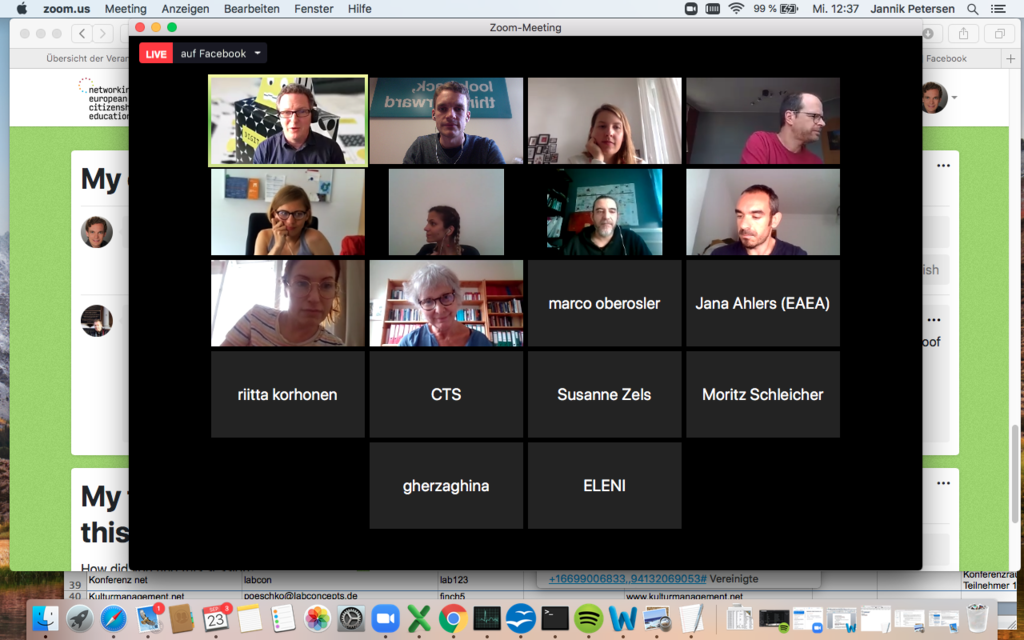
Watch the video: on Facebook
Publication: Translating European Values into Practice
A manual published in 2020. Available in English, German, Italian, and Polish languages.
What are European values? Do they actually still exist? We cannot take for granted that what is enshrined in the International Treaties is still valid today. The social, economic, political and cultural context has changed considerably. Therefore, we have decided to start from the beginning. And by “beginning”, we mean here and now.
The “here and now” shows us a growing sense of urgency to understand the complexity of contemporary society, to act as responsible citizens in the interest of the Common Good and to direct our efforts particularly at situations of marginality, exploitation and injury to personal dignity.
Continue reading “Publication: Translating European Values into Practice”